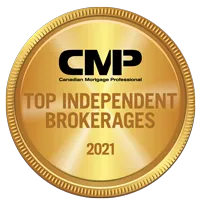Self-Employed Mortgages
Simplified Qualification: Sole Proprietorship, Incorporated, On-Contract or Commission
Access Stated Income Programs: Get low rate funds from banks, credit unions and B Lenders
Credit Situation: Bruised or New credit borrowers, challenged by past bankruptices & consumer proposals
Income Verification: Easy Bank statement, Non-Verifable income or Contributory income.

Discover the best mortgage rates and lowest mortgage rates in Canada at RateShop. Compare Canada mortgage lending rates from top lenders to secure your ideal home loan deal today.

Unlock Your Dream Home: The Ultimate Guide to Self-Employed Mortgages in Canada – Rates, Tips & Approval Secrets
Navigating the Mortgage Process as a Self-Employed Borrower
Are you self-employed and dreaming of owning a home in Canada? Securing a mortgage as a self-employed individual can feel overwhelming, but with the right information and preparation, it’s entirely achievable. This guide covers everything you need to know about self-employed mortgages, from eligibility criteria to finding the best mortgage rates in Canada. Let’s get started!
Can You Qualify?
Essential Eligibility Criteria for Self-Employed Mortgages
Lenders have specific requirements for self-employed borrowers. To qualify, you’ll typically need:
Proof of Income: Tax returns (SA302 forms), profit/loss statements, or bank statements.
Credit Score: A strong credit score (680+ is ideal).
Business Stability: At least 2 years of self-employment history.
Debt-to-Income Ratio: A low ratio to demonstrate affordability.
Understanding these criteria is the first step toward securing your dream home.
5 Year - Fixed Term from
3.89%
Apply for your Best Rate in minutes.
Everyone's rate is unique.What's yours?
It is our job to get your lowest possible rate. Your rate qualification depends on certain factors, such as credit score and home equity as per regulations.
*Advertised rates may not be offered by this lender. Mortgage lender offers are aggregated by RateShop & its Brokerage Network subject to change without notice. Speak with our mortgage broker about APR and qualification requirements.
Boost Your Approval Odds:
Proven Strategies for Self-Employed Borrowers
Improving your chances of mortgage approval is all about preparation. Here’s how:
Maintain Accurate Financial Records: Keep your business and personal finances organized.
Save for a Larger Down Payment: A 20% down payment can strengthen your application.
Reduce Debt: Pay off outstanding loans or credit card balances.
Work with a Mortgage Broker: They can connect you with lenders who specialize in self-employed mortgages.
Paperwork Made Simple:
Key Documents Needed for a Self-Employed Mortgage
Gathering the right documents is crucial. Here’s what you’ll need:
Tax Returns: Last 2-3 years of personal and business tax returns.
Bank Statements: 6-12 months of business and personal bank statements.
Proof of Identity: Government-issued ID and proof of address.
Business Financials: Profit/loss statements, balance sheets, and business licenses.
Having these documents ready can speed up the application process.
The Best Mortgage Options for Self-Employed Borrowers
(And How to Choose One!)
Self-employed borrowers have several mortgage options:
Fixed-Rate Mortgages:
Stable interest rates for predictable payments.
Adjustable-Rate Mortgages:
Lower initial rates that fluctuate over time.
Interest-Only Mortgages:
Pay only the interest for a set period.
Specialist Lenders:
Lenders who understand the unique needs of self-employed individuals.
Compare mortgage rates in Canada and choose the option that aligns with your financial goals.
Taxes & Mortgages:
What Every Self-Employed Borrower Needs to Know
Your tax strategy can impact your mortgage application. Here’s what to consider:
Net Income vs. Gross Income: Lenders focus on net income after business expenses.
Tax Deductions: While deductions reduce your tax liability, they can also lower your qualifying income.
Consistency: Consistent income over several years can improve your chances of approval.
Work with an accountant to balance tax savings with mortgage eligibility.
Self-Employed?
Here’s How to Overcome Common Mortgage Challenges
Self-employed borrowers often face unique challenges, such as:
Fluctuating Income: Lenders prefer consistent earnings.
Lack of Traditional Pay Stubs: Provide alternative proof of income.
Shorter Trading History: Some lenders require at least 2 years of self-employment.
note: Solutions include working with a mortgage broker, saving for a larger down payment, and maintaining strong financial records.
How Much Can You Borrow?
A Self-Employed Mortgage Affordability Guide
Calculating affordability is key to your mortgage journey. Here’s how lenders determine how much you can borrow:
Net Profit: Lenders typically use your average net profit over 2-3 years.
Debt-to-Income Ratio: Aim for a ratio below 40%.
Down Payment: A larger down payment can increase your borrowing power.
Use a home mortgage rate calculator to estimate your monthly payments and affordability.
Finding the Perfect Fit:
Tips for Choosing the Best Mortgage Lender for You
Not all lenders are created equal. Here’s how to find the right one:
Compare Rates: Look for the best mortgage rates in Canada or best mortgage rates Ontario.
Check Experience: Choose lenders experienced with self-employed borrowers.
Ask Questions: Inquire about their flexibility in assessing income and documentation requirements.
Consider a Mortgage Broker: They can help you navigate the market and find the best deals.
Securing Your Self-Employed Mortgage with Expert Guidance
Getting a mortgage as a self-employed individual is absolutely achievable—with the right knowledge and preparation. Understanding the required documentation and the lending process is crucial to success. Whether you choose a traditional lender or explore alternative options, the right strategy and expert support can make all the difference. At RateShop, our network of brokers simplifies the journey, helping you find the best mortgage solutions tailored to your financial needs.

FAQs About Self-Employed Mortgages
Can I get a mortgage if I’m self-employed?
Yes, but you’ll need to provide proof of income and meet lender requirements.
What’s the best mortgage rate in Canada for self-employed borrowers?
Rates vary, but working with a mortgage broker can help you find competitive options like best mortgage rates Canada 5-year fixed.
How do I prove income for a self-employed mortgage?
Use tax returns, bank statements, and profit/loss statements.
Can I refinance my mortgage as a self-employed borrower?
Yes, refinancing a mortgage is possible, but you’ll need to meet lender criteria.
As Seen And heard on
As Seen And heard on





Quick Links
Contact Information
6 Indell Lane, Brampton ON L6T 3Y3, Canada
Local: 416-827-2626
Toll: 800-725-9946
RateShop Inc. is a Mortgage Brokerage offering lowest mortgage rates to Canadians. We are provincially licensed in the following provinces: Mortgage Brokerage Ontario FSRA #12733, British Columbia BCFSA #MB600776, Alberta RECA #00523056P, Saskatchewan FCAA #00511126, PEI #160622, New Brunswick FCNB #88426, Newfoundland/Labrador.
Copyright 2026. RateShop Canada. All Rights Reserved.

